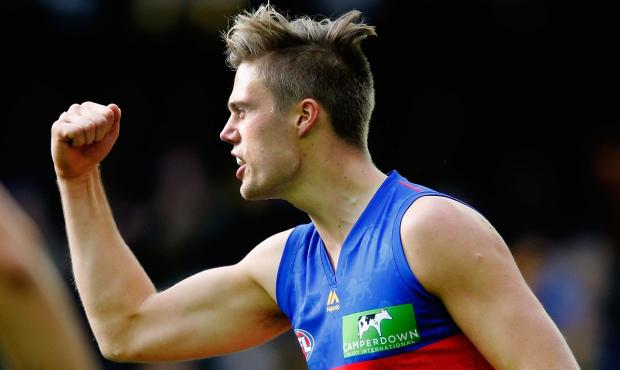Recruiting departments are tasked with perhaps the most difficult job at every AFL club: shaping their team's direction in the short, medium and long term. They are all at different stages of their road towards a premiership, but the job insists they must take a broader look all of the time.
So how does your club do it? AFL.com.au looked at each club's recruiting and list management department, uncovering who does what, who makes the tough calls and how each is a little bit different to the next.

Former leading player agent Justin Reid joined Adelaide as the club's list manager at the end of 2014. The introduction of the soft cap on football department spending has impacted every club's ability to innovate in the area of recruiting, but Reid is one of five full-time members of the Crows' department. Former Tasmanian under-18 coach Hamish Ogilvie, who formerly worked in the police force, took on the recruiting manager role in 2012. In Ogilvie's first draft the Crows were stripped of picks due to the Kurt Tippett saga, but the club nabbed a steal in Rory Atkins at No.81. Phil Bunn (eastern) and Scott Degabriele (western) are the Crows' other full-time recruiters, alongside pro scout Stephen McCrystal who also watches state league football. Adelaide has a dozen part-time recruiting staff, and also uses other resources within the club – its coaches, welfare,

The Lions lost list manager Peter Schwab at the end of last year and replaced him with long-time Gold Coast recruiting manager Dom Ambrogio, who had previously worked at the Western Bulldogs. Ambrogio's first major tick since taking control of the list was the re-signing of key forward Josh Schache, who had been weighing his future. Stephen Conole leads the recruiting department overseeing the under-18 system, with last year's draft crop already looking a winner for the club, and he's assisted closely by Andrew Farrell, former Fitzroy great Leon Harris and
The retention of Josh Schache was a big win for the Lions. Picture: AFL Photos

Having set up Greater Western Sydney's inaugural list, Carlton champion Stephen Silvagni left the Giants at the end of 2014 to return to the Blues as their list manager. At the start of this

The Magpies, perhaps surprisingly given their status as the competition's biggest club, are on the smaller side in the recruiting area. Derek Hine is the boss: he makes the final call in the recruiting and trade/free agency decisions as its list manager. He joined the club in 2003 but officially became its list and recruiting manager several years ago as lieutenants Dom Milesi and Matthew Rendell stepped up their roles. Rendell joined the Pies after his stint as Crows recruiting

Adrian Dodoro has been at Essendon so long it's almost hard to remember the club without him. The club's list and recruiting manager was there for the Kevin Sheedy
Adrian Dodoro has been running Essendon's recruiting since Kevin Sheedy's days. Picture: AFL Photos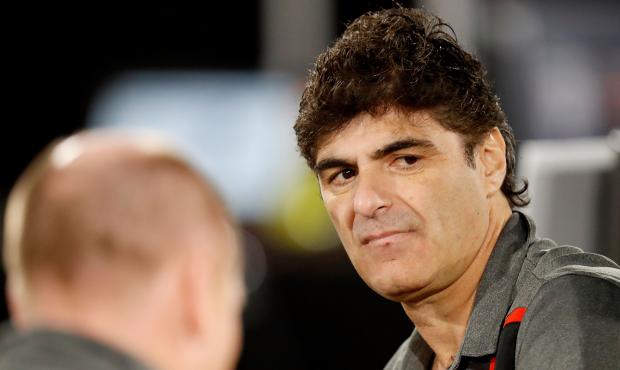

The Dockers boast one of the bigger recruiting teams in the competition. List manager Brad Lloyd is the boss, overseeing the scouting of AFL players, contracts and the draft, and has the final call on decisions. But responsibility also lies with recruiting manager David Walls, the son of former Carlton coach Robert, and Neil Ross, who is Fremantle's top pro scout. Trent Mosbey, David McMullin and Ed McMullin make up the Dockers' contingent of under-18 watchers. The club formerly assigned areas of the country to certain recruiters to track, but takes a more nimble approach now, pushing resources to where the pool looks strongest. Steve

There are three full-time members of the Cats' scouting team, including veteran list and recruiting manager Stephen Wells, former Brisbane Lions midfielder Troy Selwood and Liam Woodland. Selwood and Woodland are both in their first years of the role full-time, while Wells has been at the helm of the Cats since 1994. In that time he has become renowned for finding gems, including Corey Enright, Shane Mumford, Mark Blicavs and Matthew Egan. Selwood holds the role of talent ID manager, which sees him spot the players for his team to follow through the year, as well as organise where to send staff each weekend. Woodland is a talent ID assistant, with the club having one part-timer and six weekend 'watchers' across the country: one in Adelaide, one in Perth and four in Victoria.
Veteran recruiter Stephen Wells has plenty of runs on the board. Picture: AFL Photos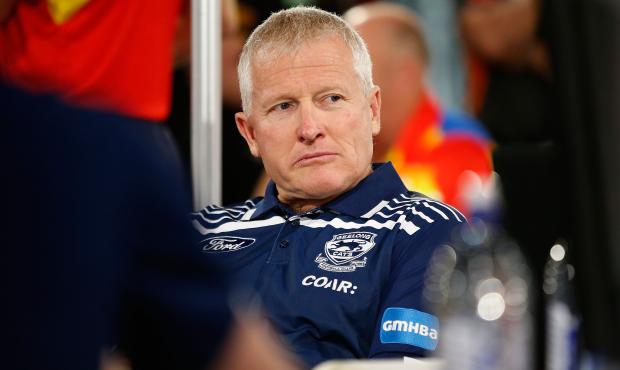

The Suns landed experienced recruiter Scott Clayton as their inaugural list manager, poaching him from the Western Bulldogs. Clayton had previously led the Brisbane Lions' recruiting

At the start of last

The Hawks have stuck to the same recruiting structure since 2010, and why not? It has brought brilliant success in that period. That was when Graham Wright took the joint recruiting and list manager role, having previously been in charge of recruiting. The 1990 Collingwood premiership player works closely with Mark McKenzie and Geoff Morris, the Hawks' two main recruiters. Morris is based in Adelaide and is assigned the western states talent pool, with Melbourne-based McKenzie covering the eastern side. Dale Bleach mixes his time between pro scouting and the junior scene, plus some coverage of the academies, while Mitch Cashion is in constant contact with the Hawks' Next Generation Academy coach Nathan Foley to
Graham Wright has had brilliant success in the recruiting and list manager role. Picture: AFL Photos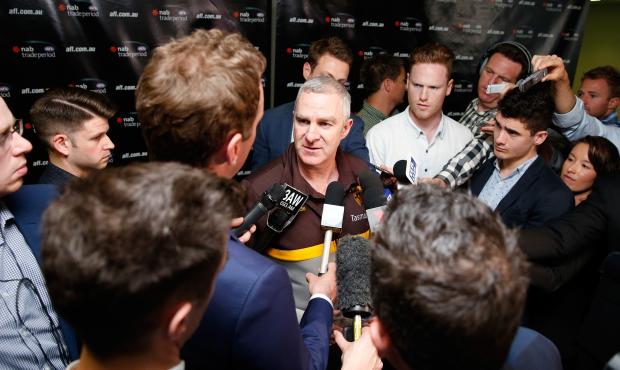

The Dees have had a stable recruiting division since Jason Taylor took the reins in 2013. Taylor, who came from Collingwood, makes the calls at the national and rookie drafts and also oversees the talent identification process in Melbourne's Next Generation Academy. Aside from his early picks, including Clayton Oliver at No.4, Taylor's best hit seems Jayden Hunt, who he plucked out of school footy in 2013 when some clubs didn't know of the speedy teenager. Tim Lamb and Darren Farrugia are Melbourne's recruiting officers, with all full-time staff expected to have a grasp of the talent across the country. Todd Patterson is at the club in a part-time role overseeing the future draft talent, the Dees'

There are two new faces in charge of North's division this year, with long-time Geelong recruiter Michael
Former North list manager Cameron Joyce at the 2016 US Draft Combine. Picture: AFL Photos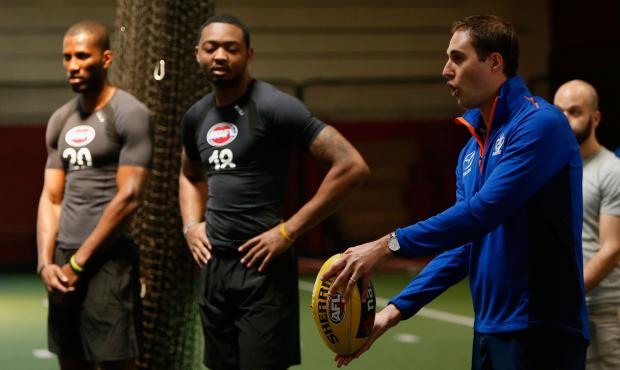

Jason Cripps has been Port's list manager since the end of 2011, having moved into that role after four seasons as Mark Williams' assistant coach. Cripps is based at Port's office in Melbourne, while the Power's recruiting manager Geoff Parker works out of the club's Alberton Oval offices. Anthony Parkin and Chris Drain are also key members of Port's set-up, with Parkin having a focus on Victorian and Tasmanian

Richmond's recruiting set up underwent change at the end of last year when Neil Balme came to the club as
Dan Richardson has a key role in the Tigers' recruiting and development. Picture: AFL Photos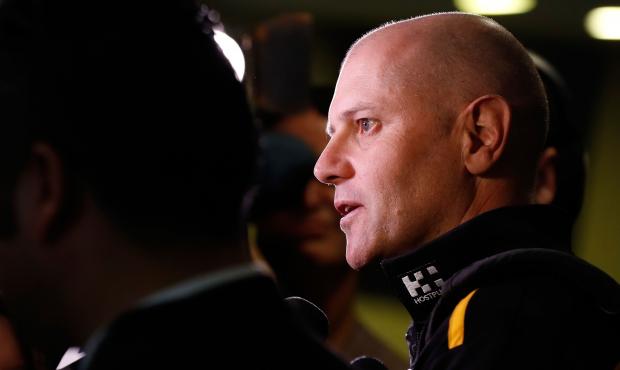

Former Saints assistant coach Tony Elshaug combined his recruiting manager role with the list management side of things at the start of 2015, when previous Saints list manager Ameet Bains moved into a chief operating officer role at the club. Bains still has an involvement in his former department: specifically with player contracts and managing the club's salary cap. Elshaug, who was also a long-time assistant to Denis Pagan at North Melbourne and Carlton and before that a premiership player with Essendon, has had to watch more AFL games in his updated role, meaning more responsibility has been shared with his recruiting team. The club's three full-time under-18 scouts are based at Seaford but oversee different areas of the country, with Chris Liberatore handed Victoria, Mark Smart on top of Western Australia and South Australia, and Chris Toce responsible for all division two states (Queensland, NSW-ACT, Tasmania and the Northern Territory). Ex-Blues recruiting boss Wayne Hughes is the Saints' pro scout and part of its list management committee. The club has 17 part-timers scattered throughout the land, including former chief recruiter John Beveridge, who focuses on finding alternative athletes from other sports.

One of the most experienced recruiters in the industry, Kinnear Beatson, heads the Swans' small department. Beatson was a lead recruiter for the Brisbane Lions between 1994-2005, building their dynasty, before joining the Swans at the end of 2006 and shaping their 2012 premiership list. Beatson is the Swans' recruiting and list strategy manager, overseeing who comes into the club and liaising with player managers through the year to be on top of the market. The club's football manager, Tom Harley, takes care of the contract negotiations. Michael Agresta and Ross Monaghan are the Swans' other full-time staff, with Agresta focusing on the national draft. He is also the Swans' recruiting operations manager,
Kinnear Beatson (left) is one of the veterans of the AFL recruiting scene. Picture: AFL Photos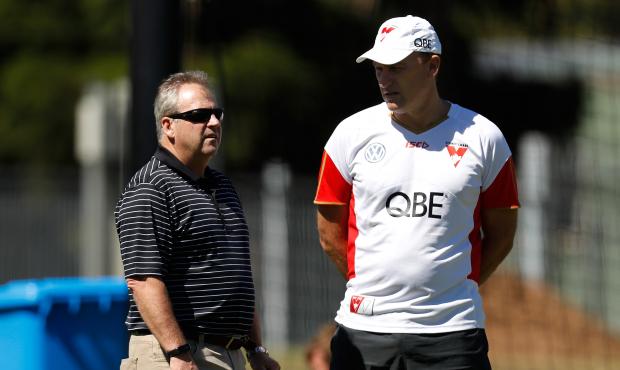

West Coast pours plenty of resources into its recruiting department, making it one of the competition's biggest teams. Rohan O'Brien is into his seventh year as the club's recruiting

More finances for the Dogs' recruiting department in the past few years changed their philosophy to make each scout a specialist in certain areas. Having been short-staffed before then, the club found gaps were exposed in its coverage of players at AFL and junior level. But that has been tightened now, with Jason McCartney the decision maker in the list management area (trades and free agency), and Dan Fisher working as the Bulldogs' pro scout. Simon Dalrymple, whose selection of Marcus Bontempelli at No.4 in the 2013 draft shaped their run to last year's premiership, is the recruiting manager, with a team of four full-timers beneath him. Jamie Downs (South Australia, Western Australia and Northern Territory) and Wayne McCraw (Victoria, NSW and Queensland) are the Dogs' leading recruiting officers for their respective zones, while Dave Weston is the organiser of the recruiting team. He collects all the GPS numbers and Champion Data statistics, maintains prospects' fitness and psychological profiling and plans for key events through the year. In a newer role, David Newton manages the Bulldogs' Next Generation Academy, seeing him identify possible prospects in the club's specified areas. They have 10 part-time staff.

